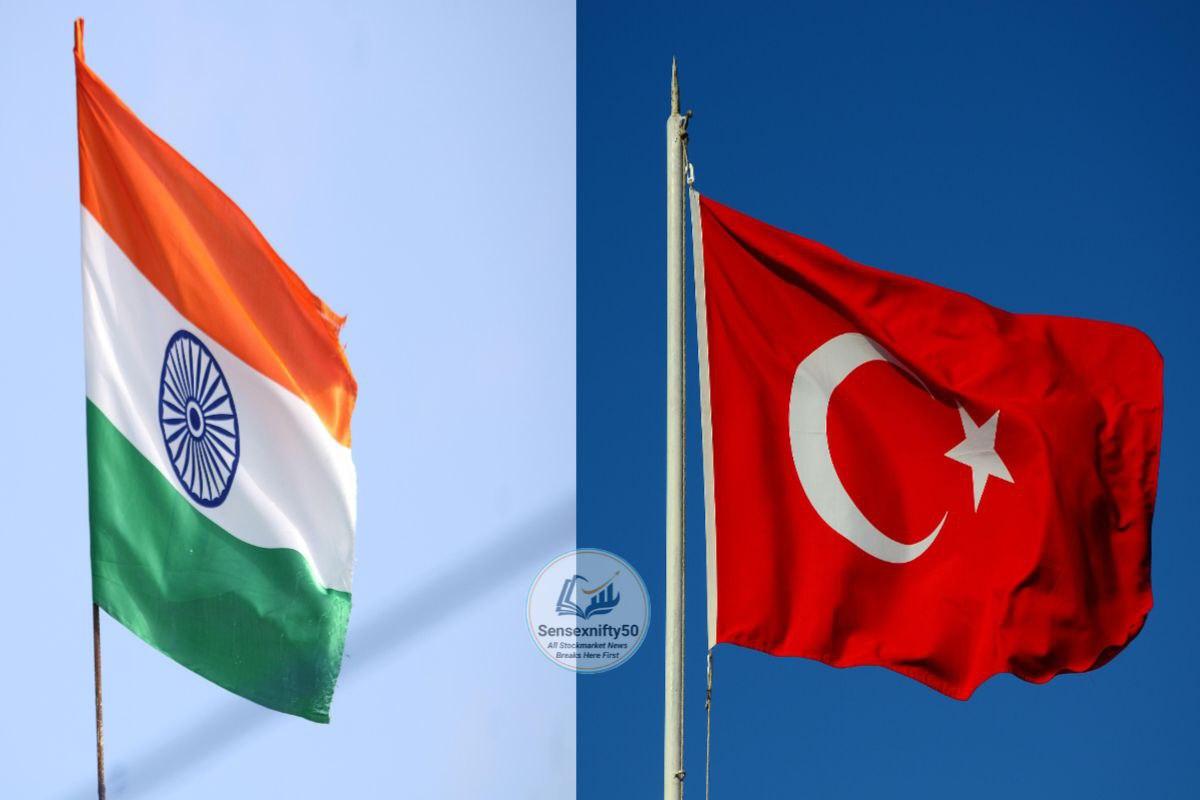
A new and unconventional rift is rapidly developing between India and Turkey, marked by growing hostility and clear strategic opposition. While India has been strengthening its ties with Turkey’s adversaries and even supplying them with weapons, Turkey has taken a firm stand by backing Pakistan diplomatically and politically, frequently referring to Pakistan as its "brother nation."
This tension reached a new peak in May 2025, when war broke out between India and Pakistan. Turkey openly supported Pakistan during the conflict, reiterating its brotherhood with Islamabad. In response, India moved swiftly to deepen its relationships with nations Turkey considers adversaries. One of the most significant diplomatic gestures was Prime Minister Narendra Modi’s visit to Cyprus – a country often viewed by Turkey in the same emotionally charged light as India sees Kashmir.
Turkey’s growing discomfort with India’s geopolitical maneuvers has now pushed Ankara to rethink its defense strategy. The clearest signs of this shift are visible in Turkey’s changing stance on two major defense systems – the American F-35 fighter jet program and the Russian S-400 air defense system.
Initially, Turkey appeared disinterested in rejoining the American F-35 program, a deal that had stalled in previous years due to Ankara's acquisition of the Russian S-400 system. But recent developments suggest a reversal in Turkey’s position. Turkey is now expressing renewed interest in the F-35 fighter jet fleet, signaling a potential thaw in defense ties with the United States.
Simultaneously, Turkey is displaying hesitation toward continuing with the Russian S-400 system. President Recep Tayyip Erdoğan made a significant announcement on the sidelines of the recent NATO summit held in The Hague. He hinted at reopening negotiations with the U.S. over the F-35 program, while downplaying the role of the Russian S-400 in Turkey’s future defense architecture. Instead, Erdoğan emphasized Turkey’s own indigenous air defense solution, the multi-tiered "Steel Dome" system.
The Steel Dome is a domestically developed, multi-layer air defense system integrating Turkish companies like Aselsan, Roketsan, and MKE. It features sensors, command and control stations, and AI-driven decision-making tools to provide comprehensive protection against aerial threats. According to Turkish state broadcaster TRT Global, Ankara is now planning to expand this system nationwide. This robust promotion of Steel Dome is being interpreted as a sign of Turkey distancing itself from Russian defense technology.
While Turkey is realigning its defense posture closer to NATO standards and reducing reliance on Russian systems, India is moving in the opposite direction. New Delhi continues to deepen its defense cooperation with Moscow, especially around the S-400 air defense system. India has already inducted a few squadrons of the S-400 and is now in talks with Russia for acquiring additional units. These discussions are progressing, and it is expected that India will soon bolster its air defense capabilities further with more S-400 squadrons.
The diverging paths of India and Turkey in terms of military alliances and defense procurement reflect the broader geopolitical realignment taking place. While Turkey is leaning westward, seeking stronger NATO integration and reduced dependency on Russia, India remains committed to its long-standing defense partnership with Moscow. The S-400 system, in particular, has become a symbolic representation of this divergence.
This strategic recalibration is not merely about defense equipment but also reflects broader political and diplomatic alignments. As India continues to strengthen its position in Eurasia and beyond, including forging ties with countries hostile to Turkey, and as Turkey doubles down on its support for Pakistan, the distance between New Delhi and Ankara is likely to grow further.
What began as ideological friction has now transformed into a full-scale strategic divergence, playing out on the global stage through shifting defense alliances, weapon procurements, and high-stakes diplomacy. The consequences of this rift may soon be visible not just in South Asia or the Eastern Mediterranean, but across the global geopolitical landscape.
Disclaimer: This article is based on publicly available sources and recent geopolitical developments. It reflects evolving international relations and strategic decisions that may continue to shift with time.




